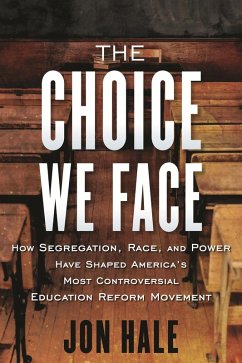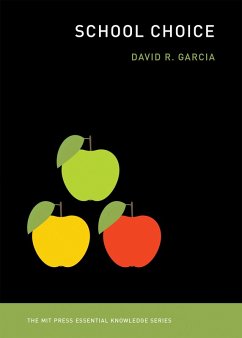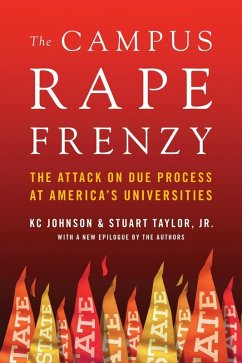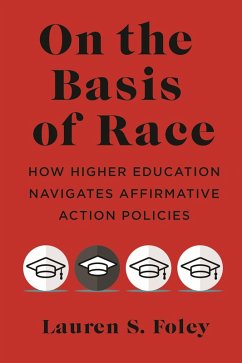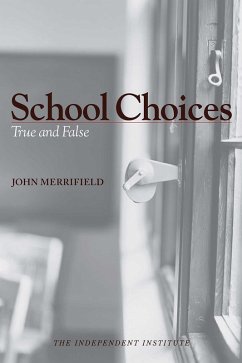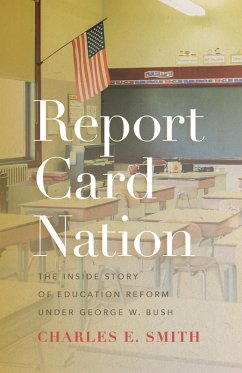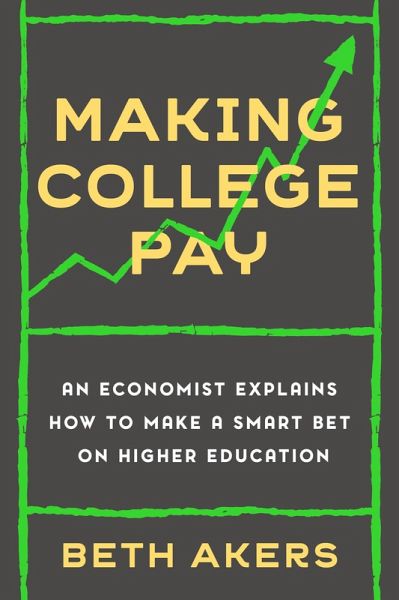
Making College Pay (eBook, ePUB)
An Economist Explains How to Make a Smart Bet on Higher Education
Versandkostenfrei!
Sofort per Download lieferbar
3,99 €
inkl. MwSt.
Weitere Ausgaben:

PAYBACK Punkte
2 °P sammeln!
A leading economist makes the case that college is still a smart investment, and reveals how to increase the odds of your degree paying off. "Full of easy-to-understand advice grounded in deep expertise and research."-Martin West, William Henry Bloomberg Professor of Education, Harvard University The cost of college makes for frightening headlines. The outstanding balance of student loans is more than $1.5 trillion nationally, while tuitions continue to rise. And on the heels of a pandemic that nearly dismantled the traditional college experience, we have to wonder: Is college really worth it?...
A leading economist makes the case that college is still a smart investment, and reveals how to increase the odds of your degree paying off. "Full of easy-to-understand advice grounded in deep expertise and research."-Martin West, William Henry Bloomberg Professor of Education, Harvard University The cost of college makes for frightening headlines. The outstanding balance of student loans is more than $1.5 trillion nationally, while tuitions continue to rise. And on the heels of a pandemic that nearly dismantled the traditional college experience, we have to wonder: Is college really worth it? From a financial perspective, says economist Beth Akers, the answer is yes. It's true that college is expensive, but once we see higher education for what it is-an investment in future opportunities, job security, and earnings-a different picture emerges: The average college graduate earns an additionalmillion dollars over their career (compared to those who stopped their education after high school), and on average, two- and four-year schools deliver a 15 percent return on investment-double that of the stock market. Yet these outcomes are not guaranteed. Rather, they hinge upon where and how you opt to invest your tuition dollars. Simply put, the real problem with college isn't the cost-it's the risk that your investment might not pay off. In Making College Pay, Akers shows how to improve your odds by making smart choices about where to enroll, what to study, and how to pay for it. You'll learn • why choosing the right major can matter more than where you enroll • the best criteria for picking a school (hint: not price, selectivity or ranking) • why working part-time while enrolled might set you back financially • why it's often best to borrow, even if you don't have to • the pros and cons of innovative alternatives to traditional college • how to take advantage of new, low-risk financing tools Full of practical advice for students and parents, Making College Pay reminds us that higher education remains an engine for opportunity, upward mobility, and prosperity.
Dieser Download kann aus rechtlichen Gründen nur mit Rechnungsadresse in A, B, BG, CZ, D, DK, EW, E, FIN, F, GR, HR, H, I, LT, L, LR, NL, PL, P, R, S, SLO, SK ausgeliefert werden.




